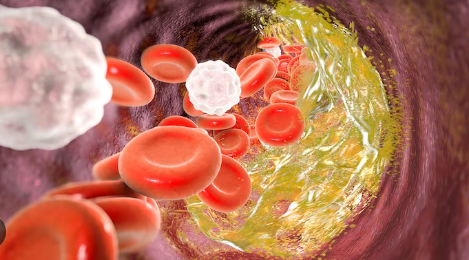
For years, lowering cholesterol felt like a guessing game. Eggs? No. Shellfish? Best to avoid. It used to be straightforward—cholesterol meant bad. But new research reveals a shift: it’s not dietary cholesterol we should fear but rather saturated fats, trans fats, and sugary, processed carbs that do the most harm.
Picture yourself in a grocery aisle, debating between a carton of eggs and a cereal box, unsure which is worse for your heart. Confusing, right? The reality is that eggs aren’t the main concern; it’s the unhealthy fats and hidden sugars in processed foods that significantly impact cholesterol. Understanding this can help you to take better care of your heart and lead a healthier life.healthier, longer life.
Understanding Dietary Cholesterol
New research shows that dietary cholesterol has only a modest impact on blood cholesterol for most people. The body regulates cholesterol production by synthesizing more or less cholesterol based on food intake. For most, eating cholesterol-rich foods doesn’t cause harmful spikes. As a result, the American Heart Association has relaxed their guidelines. Eggs, once limited, are now seen as a healthy source of protein, no longer directly tied to heart disease. So, if dietary cholesterol isn’t the main problem, what is?
The Role of Saturated and Trans Fats
The type of fat you eat has a major effect on cholesterol. Saturated fats, found in red meat, butter, and full-fat dairy, raise LDL (“bad” cholesterol), leading to plaque buildup in arteries and increasing the risk of heart disease. Trans fats, found in processed foods like margarine and snacks, are even worse, as they raise LDL and lower HDL (“good” cholesterol). Both fats trigger the liver to produce more LDL, which thickens artery walls—a process called atherosclerosis. Over time, this can lead to serious heart conditions.
The Impact of Refined Carbohydrates
Refined carbohydrates, like white bread, pasta, sugary cereals, and sweets, don’t just mess with your blood sugar; they can also have a big impact on your cholesterol. When you eat these foods, your body breaks them down quickly, leading to a rapid spike in blood sugar. To handle this, the pancreas pumps out extra insulin, which helps move glucose into your cells. But here’s the catch: this insulin surge also triggers the liver to produce more LDL cholesterol and triglycerides—types of fats in the blood that are linked to heart disease. The quick breakdown of these carbs may satisfy hunger at the moment, but they offer “empty” calories, lacking real nutritional value and often leading to weight gain. Over time, this process raises your cholesterol and increases your risk of heart problems.
What Should You Eat Instead?
Instead of obsessing over dietary cholesterol, focus on reducing saturated fats, trans fats, and refined carbohydrates. A Mediterranean-style diet is a great choice, rich in fruits, vegetables, whole grains, nuts, and seeds. This diet primarily uses olive oil and fatty fish, both packed with omega-3 fatty acids that lower bad cholesterol (LDL) and triglycerides while raising good cholesterol (HDL). Whole grains like brown rice, quinoa, and oats, along with fiber-rich legumes like lentils and beans, help eliminate cholesterol from your body by binding to it in the digestive tract. These simple changes can significantly enhance your heart health.
Source: indianexpress.com




